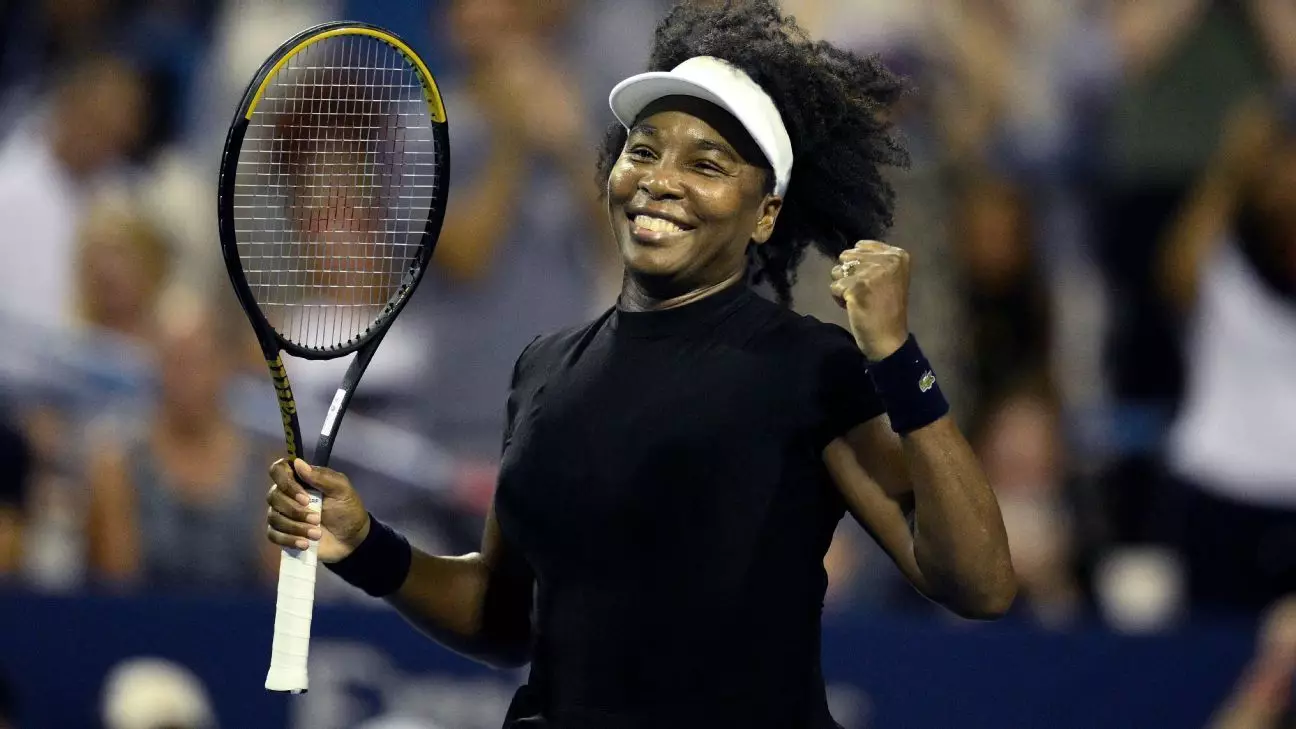Venus Williams’s recent victory at the DC Open is more than just a statistical anomaly; it is a profound statement about resilience, perseverance, and the relentless pursuit of excellence regardless of age or setbacks. At 45, she defies conventional expectations, reminding us that greatness is not bound by chronological age but by an unyielding spirit. While many athletes vanish into the shadows after their prime, Venus chooses to stand tall, challenging the narrative that athletic longevity is an impossibility. Her win spotlights the critical importance of mental toughness and an unwavering desire to remain relevant, not just for her legacy, but for the significance it holds in inspiring a broader conversation about aging, resilience, and the capacity for renewal.
A Triumph Rooted in Determination, Not Nostalgia
Contrary to the tendency of some to dismiss older athletes as relics clinging to past glories, Venus’s return is rooted in authentic determination. Her journey back to competitive tennis was marred by health issues, notably surgery to remove uterine fibroids, and periods of inactivity. Yet, rather than capitulate, she pushed through injury, doubt, and the overwhelming sense of time slipping away. Her victory is not simply about nostalgia or sentimental appeal; it is a deliberate act of defiance against ageist perceptions in sports and society. She plays not to revive her past but to demonstrate that the pursuit of greatness needs to be redefined, emphasizing quality, passion, and resilience over chronological benchmarks.
The Cultural Significance of Her Victory
Venus Williams’s achievement transcends tennis. It acts as a rallying cry for those who believe that societal expectations often prematurely limit individuals, especially women, in both their careers and personal pursuits. Her return sends a powerful message: age should never be a barrier to striving for personal ambitions. In a culture that idolizes youth and often devalues experience, her performance is a stark reminder that wisdom and endurance are equally, if not more, valuable. This victory also emphasizes the importance of community and support—evident in her adoring crowd that cheered her every shot. It highlights the crucial role of societal encouragement and the importance of challenging stereotypes that seek to confine us to arbitrary timelines.
Challenging the Status Quo of Athletic Longevity
The narrative of athletic decline is deeply ingrained in our societal consciousness, often presenting a stark choice: retire or fade away unnoticed. Venus’s resurgence destabilizes that narrative, pushing the boundaries of what is considered possible. She proves that with the right mindset, discipline, and support, athletes can defy expectations and continue to compete at high levels beyond their 40s. Her success ignites a broader discussion about health, training, and the undervalued assets of experience and mental resilience. But more importantly, it demands a shift in how society perceives aging professionals—not as relics, but as individuals capable of continuous growth and contribution.
A Symbol of Progressive Liberal Values
Venus’s story aligns with a centrist liberal ethos advocating for inclusivity, diversity, and the dismantling of ageism and gender stereotypes. Her comeback underscores the importance of creating environments that foster lifelong participation and support for talented individuals regardless of age or background. It champions the principle that opportunity should not be dictated by societal expectations rooted in bias. By refusing to accept limitations imposed by her age, Venus embodies a progressive perspective that values experience and tenacity as essential components of success. Her story can serve as an inspiration for broader reforms in sports, work, and social institutions—challenging discriminatory narratives and celebrating the diverse capacities of all individuals.
In a world obsessed with youth and rapid success, Venus Williams’s recent victory is a tasteful rebellion against the superficial metrics of achievement. It is a testament to her unwavering resolve and a call for society to reevaluate how it perceives age, capability, and resilience. Her triumph is not merely a personal milestone but a rallying point for change—a bold statement that greatness, in many forms, can endure far longer than society often credits.

